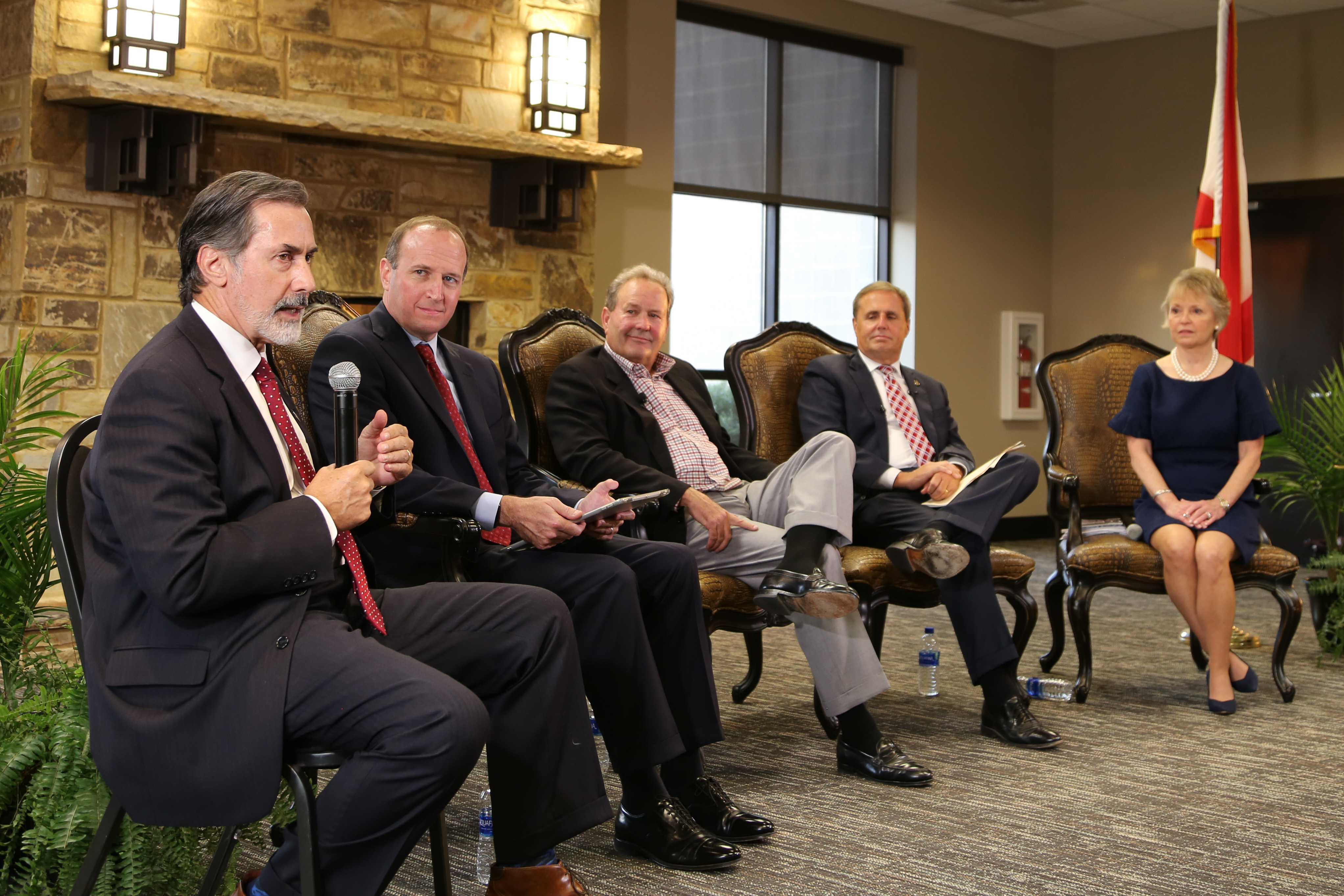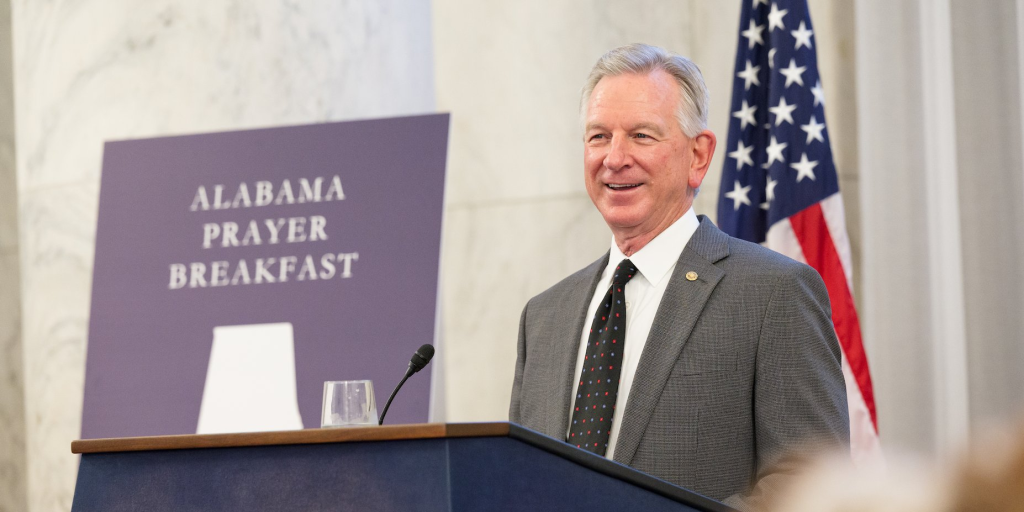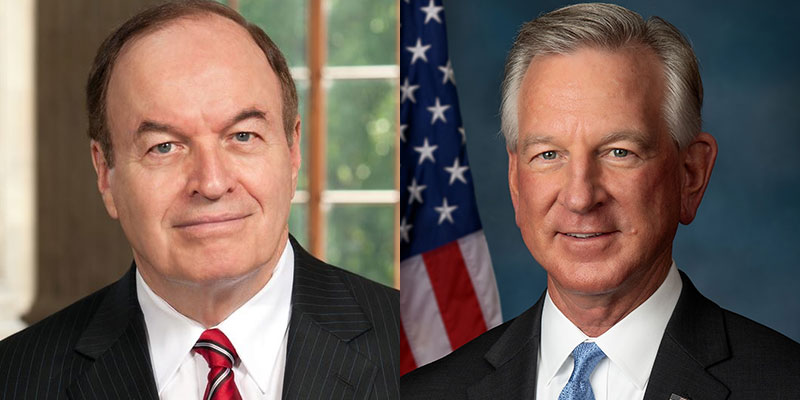TRUSSVILLE — Workforce development drove the conversation at this week’s Yellowhammer News Shapers event at the Trussville Civic Center. The panel of small business experts quickly reached a consensus that developing a qualified, skilled workforce is the top issue facing Alabama’s job creators now and in the future.
“We have a significant shortage of qualified workers,” explained panel participant Rosemary Elebash, Alabama state director for the National Federation of Independent Business (NFIB).
And Elebash is in a position to know.
She outlined her group’s process for determining its agenda, revealing that individual members vote on which issues the group pursues and that developing a qualified workforce was far and away the pressing issue for them.
Elebash warned that the worker shortage problem “is looming and it does not matter the industry.”
Mike Milam, owner of Milam & Co. construction company, agreed with Elebash’s assessment on Alabama’s workforce needs and said it is something his business has had to deal with on a consistent basis.
Milam said he is also focused on retaining his current workforce.
“We have to make our place of business a place where they want to stay there,” he remarked.
Citing a recent initiative by Governor Kay Ivey, Elebash said there will be a need for 500,000 new workers in the next five years in order to meet the needs of Alabama’s economy.
She disclosed that this has already been felt by small business owners as a result of people retiring and leaving the workforce during the same period of time when businesses are attempting to grow.
“Our businesses are not able to grow because we can’t find the people to work,” she said.
State Rep. Danny Garrett (R-Trussville) stressed the urgency with which the state must bolster its job training programs.
A member of Lt. Governor Will Ainsworth’s workforce development council, Garrett said the work the group has done with a special consultant has allowed them to gain a better understanding of the direction policy makers need to go.
“What you find out is that there are a lot of workforce development initiatives going on all across the state but they are all being done in individual silos and not necessarily connected,” Garrett said. “It’s hard to determine if we’re all moving in the same direction. We want to bring them all together and determine what is the best way forward.”
For Garrett, the best way forward involves being mindful of how technology will impact jobs.
He pointed to a study presented to the Lt. Gov.’s workforce council which concluded 40% of workers today are likely to be displaced by 2030, either through automation or technology.
Garrett used the example of ordering kiosks in restaurants as a way automation will change the way business is done.
“The food service industry will be dramatically impacted,” he said.
That’s why he sees careful planning as vital to the overall effort.
“Not only do we need to develop our workforce for current jobs, we’ve got to get out front and understand where we are going,” advised Garrett.
Whichever direction the state ends up going with its workforce, the clear consensus of the panel was that it will take significant collaboration among all stakeholders in Alabama’s economy.
Elebash said NFIB was partnering with the Alabama Community College System (ACCS) to address the issue. ACCS chancellor Jimmy Baker and vice chancellor Jeff Lynn are meeting with groups of small businesses to discuss workforce needs, she said.
One example, Elebash mentioned, of how this partnership has led to a curriculum change occurred at the Alabama Aviation College in Ozark. She said the commercial driver’s license program adopted a training program based on the needs of local businesses, with those businesses helping to provide the equipment in which the drivers-in-training could learn.
RELATED: Small businesses, job-seekers set to benefit from reforms to unemployment law
“We are fortunate in this respect: Dr. Baker understands who the customer is,” remarked Elebash. “And the customer is the business owner who hires the product who is the student. The school is the provider.”
As vice chairman of the education budget committee, Garrett shared in the belief that the community colleges are playing a crucial role in workforce development.
“There has been a concerted effort in the last three sessions to look at funding for the community colleges because that’s really where the bulk of this training is going to come from,” he explained.
He emphasized further that having the community colleges being separated out from the state school board has had a positive impact on workforce training because they are now “laser focused” on that effort.
As a member of the Jefferson County Industrial Development Board, Milam said he is just now gaining an understanding of the job training programs that are out there, particularly those administered through AIDT. He feels more people should take advantage of AIDT’s programs to go out and help small businesses with their workforce needs.
Another workforce development initiative discussed by the panel was the state’s burgeoning apprenticeship program established through the Alabama Department of Commerce.
Milam remarked that participating in an apprenticeship program could be helpful to a business like his.
“Some of our most successful hiring has come through the co-op program,” he said. “I could see where we would hire two or three people immediately [through the apprenticeship program].”
Efforts to streamline the administration of the apprenticeship program will benefit small business, according to Elebash. She worked with state agencies to cut some of the excess paperwork and red tape originally associated with the program.
Apprenticeships can pay dividends in the construction industry, Milam believes.
“In our business, it’s in the ditch where you learn and then you go to the next phase and then the next phase,” he said. “We have to develop them internally.”
RELATED: Shift to knowledge-based economy driving Birmingham’s workforce development efforts
Elebash provided those in the audience with a final recommendation moving forward, and that was to continue electing leaders who understand the challenges facing small business.
She highlighted the pristine voting records of Congressman Gary Palmer (AL-06), State Senators Shay Shelnutt and Dan Roberts and Garrett. She said each had a 100% voting record for small business.
Tim Howe is an owner of Yellowhammer Multimedia












